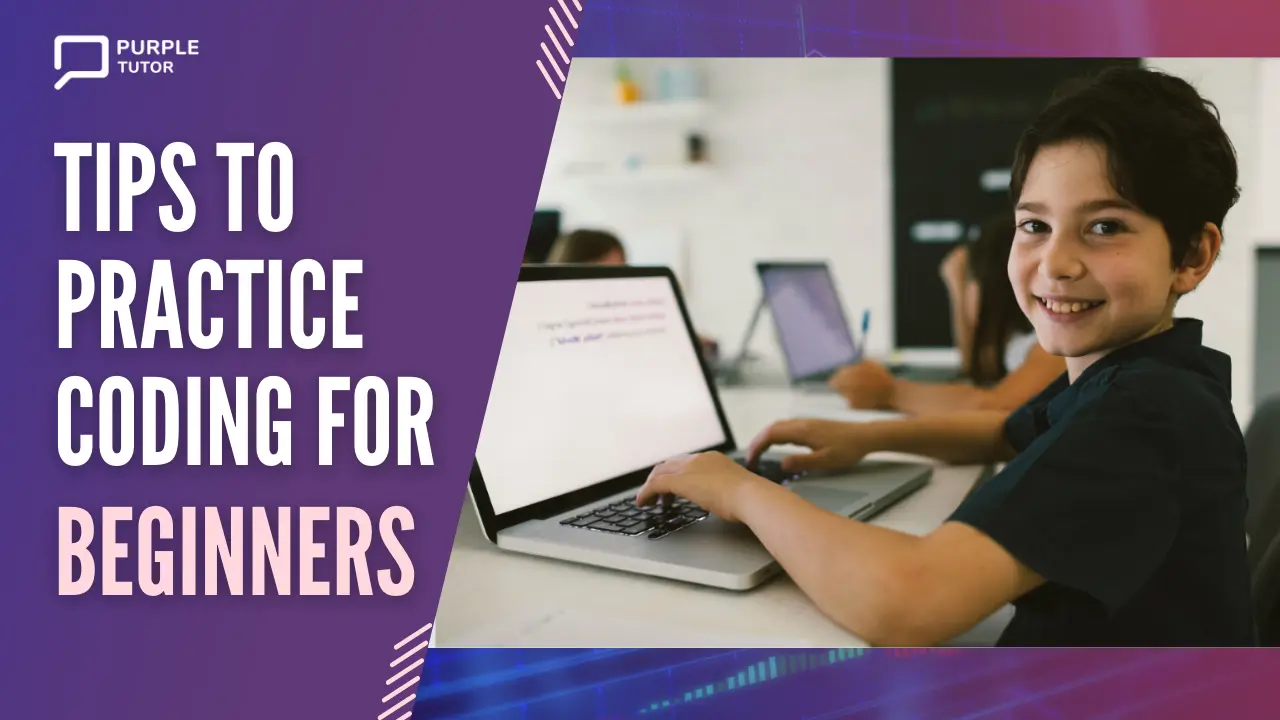
Just like any other skill, coding requires practice to become proficient. The more you practice coding, the better you will become at it. You will develop an intuition for what works and what doesn’t, and you will be able to write code more quickly and efficiently. When you practice coding, you reinforce the concepts that you’ve learned. Repetition is key to retaining information, and coding exercises and projects can help you to apply what you’ve learned in a practical way.
Coding involves breaking down complex problems into smaller, more manageable parts. As you practice coding, you will improve your ability to analyze problems and develop solutions. This skill can be applied to many areas of life, not just coding. By practicing coding and building projects, you will create a portfolio of work that you can showcase to potential employers or clients. This can help you to land a job or get freelance work.
In this article, you will learn some tips that will help you practice coding.
Guidelines to Practice Coding
With the right mindset and approach, anyone can learn to code. Here are some tips on how to practice coding for beginners:
-
Choose a programming language
There are many programming languages to choose from, but some of the most beginner-friendly ones are Python, JavaScript, Ruby, etc. Choose a language that interests you and has good learning resources available.
-
Find a mentor, tutor or an online course
Learning to code can be challenging, but it’s easier when you have a mentor or a supportive group. Join online coding tutors like PurpleTutor, where you will get a complete hand-holding.
-
Set up your development environment
You’ll need a code editor and a terminal to run your code. You can use free tools like Visual Studio Code, Atom, or Sublime Text for your editor, and the terminal that comes with your operating system.
-
Start with simple programs
Begin with basic programs like printing “Hello, World!” or asking the user for their name and responding with a greeting. This will help you understand the syntax and structure of the programming language you’ve chosen.
-
Use online resources
There are many websites and platforms that offer coding exercises, tutorials, and challenges for beginners – such as PurpleTutor, coding videos on Youtube, etc. to start.
-
Read code
Read through the code written by other programmers to gain a better understanding of different programming styles and techniques. This can also help you to identify errors and improve your own coding skills.
-
Build small projects
Once you feel comfortable with the basics, start building small projects. This will help you to understand how to put together different parts of the language to create functioning programs.
-
Break down complex problems
When faced with a complex problem, it’s easy to get overwhelmed. Break down the problem into smaller, more manageable tasks. This will help you understand the problem better and make it easier to solve.
-
Collaborate with others
Collaborate with other programmers and participate in coding communities. This can help you to learn from others, get feedback on your code, and share your own knowledge.
-
Learn from your mistakes
Making mistakes is part of the learning process. Don’t be afraid to make mistakes, but make sure to learn from them. Review your code and look for ways to improve it. Ask for feedback from your mentor or tutor.
-
Practice regularly
The more you practice coding, the better you will become. Try to code every day, even if it’s just for a few minutes.
Remember, coding is a skill that takes time and practice to develop. Don’t be discouraged if you make mistakes or struggle with certain concepts. Keep practicing, ask for help when you need it, and stay motivated.
Conclusion
Practicing coding is essential for anyone who wants to become proficient in coding. It builds skills, reinforces concepts, improves problem-solving skills, increases creativity, and builds a portfolio of work. So, keep practicing and don’t be afraid to make mistakes!
Frequently Asked Questions (FAQs)
1. Is there a free demo class?
A: Yes. We give one free demo class, which can be booked from the booking link. We encourage you to take the class and assess the experience.
2. Can I select my schedule for the classes?
A: Yes. We have flexible days and times. You can select any time and any day that suits your timetable.
3. Is there any certificate given on completion of the online coding course?
A: The student will get a certificate after completion of the coding course.
4. What do you require for learning coding from PurpleTutor?
A: It is necessary to have a laptop or computer with a webcam and a stable internet connection. For all the courses, there are no coding prerequisites required except for the Data Science coding courses. For these, the student needs to know core Python programming concepts.
For the 3D Animation and Game Design course and the Space Tech coding courses for the Age group 12-15 years. Please go through Roblox hardware and OS requirements as mentioned here.
6. Do you have assessments during the coding course?
A. Yes, we assess the student periodically during the progress of the coding classes and give feedback on the student’s performance.
7. What are the courses that PurpleTutor offers?
A: PurpleTutor provides Cutting edge courses to make the student’s future ready. We have courses like – Python, Web Development, Machine Learning and Artificial Intelligence Courses, Cyber Security, Roblox Games & many more on offer. Please visit our courses section for more information or talk to a counsellor. We encourage you to book a complimentary class with us, enjoy & assess the in-class experience. One can also discuss courses with our teachers in-person too during the class too.
